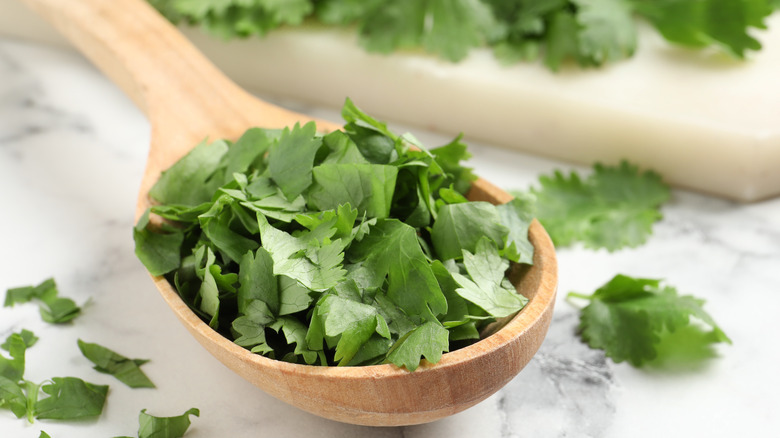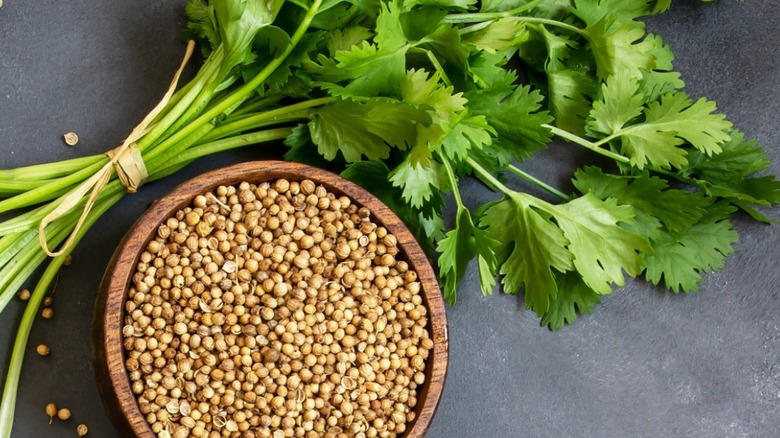The Reason Cilantro Tastes Like Soap To Some People
Cilantro (Coriandrum sativum), aka coriander, Chinese parsley, and Mexican parsley (per MasterClass), grows all around the world and is used in a variety of cuisines — from Mexican and Indian to South and Southwest Asian to Middle Eastern. Coriander seeds are often dried and used as a citrusy spice, while the cilantro stems and leaves are used as a garnish, for sauces, and in every manner of dish. Yet, cilantro is a polarizing herb, with some people even using the word "hate" to describe how they feel about it.
It's true, there exists a group of people who despise cilantro and vehemently insist on its place on the floor rather than the dinner plate. Famed chef Julia Child herself was one such opponent of the herb, describing it as having a "dead taste" (via The Kitchn), while others, according to Allrecipes, say cilantro tastes like soap and leaves a strange inedible aftertaste.
Genetics and cilantro's soapy taste
It seems the reason why cilantro tastes like soap to some people may have to do with genetics. According to the journal Nature, Nicholas Eriksson at the consumer genetics firm 23andMe tested peoples' perceptions and preference of the herb cilantro and then compared certain genes that they knew were responsible for influencing taste and smell. Of their findings, which were published in the peer-reviewed journal Flavour, the gene OR6A2, found in a cluster of genes responsible for olfactory senses, seemed to have the highest correlation to the soapy taste of cilantro in subjects.
OR6A2 induces olfactory functions in people that make them more susceptible to aldehydes, a class of chemical compound that is also used in many soaps and perfume scents. Thus the correlation in peoples' minds between aldehyde-producing cilantro and soap, potentially explaining the general sense of disgust when cilantro finds its way into their food. The study stated this makes OR6A2 "a compelling candidate gene for the detection of odors that give cilantro its divisive flavor."
Nature notes there have been several other studies linking a dislike in cilantro and other genes that assist in the detection of bitter tastes, notably research done by Lillie Maur at the University of Toronto and a decade-old genetics analysis study published in Chemical Senses. This seems to indicate that OR6A2 may not be the only deciding factor in cilantro preference, and in fact the subjectivity of preference may inherently be difficult to measure. Even Eriksson and his team calculated that less than 10% of cilantro preference was conclusively linked to any sort of common genetic variants.

